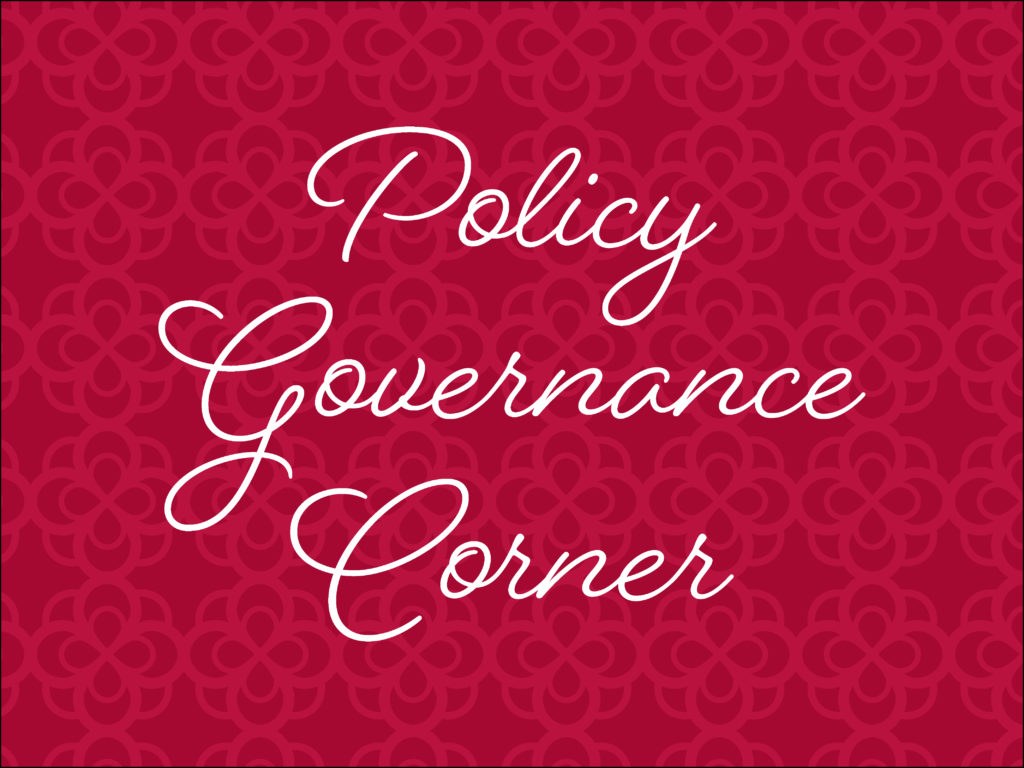Policy Governance Corner: The Excitement Of Monitoring In Policy Governance

by Crystal Combs, Nu Beta (U of Mississippi), International President

What is monitoring? How does it work?
And why is it exciting?
One of the primary responsibilities of the Executive Board is monitoring. While it may not be the most exciting thing we get to do, it is a very important part of our work as Executive Board members. Monitoring is how we make sure that our organization is on track. It is how we know what is working, what is not, and where we go from here. And that is very exciting!
In real life, it is a report that is provided to us by our Executive Director. Think of it as a report card for how our Fraternity is doing in a variety of different areas. Each Monitoring Report is directly linked to a policy in our policy set. These reports are designed to share two things: the Executive Director’s interpretation of the policy (and why that makes sense), and any information that illustrates how our organization is accomplishing the work of the policy.
For those curious about AOII’s policy set, you can find it on AOII’s member portal, AlphaLink. After logging into AlphaLink, just click on “Fulfilling the Promise” and then “AOFiles: Member Documents.” You will have to “Add [AOFiles: Member Documents] to Dashboard” before being able to “Enter” this area.
Over the course of a biennium, the Executive Board will review Monitoring Reports for 17 policies relating to our Ends and Executive Limitations. While some policies are monitored semi-annually or on a quarterly basis, each of these policies is monitored at least once during a biennium. Once we have a Monitoring Report from our Executive Director, we determine if we agree that her interpretation is a reasonable one. If we determine that it is a reasonable interpretation, then we proceed to review the supporting information. If we determine that the interpretation is not reasonable, we turn it back to the Executive Director for review and revision. Next, we review the data to determine if we believe that our Fraternity is in compliance with the policy. If we are in compliance, we make a note of it and plan for the next scheduled monitoring of that policy. If we are not in compliance, we review the rationale as to why and the plan for getting us there. We then turn the report back and set the next date that we will monitor our progress.
Since Convention, we have reviewed Monitoring Reports for Planning (EL-4), Financial Condition and Activities (EL-5), Asset Protection (EL-6), Investments (EL-7), Compensation and Benefits (EL-8), and Organizational Culture (EL-10). Most of these policies are financial in nature and will be reviewed again. In fact, our policies on Financial Conditions and Activities (EL-5) and Compensation and Benefits (EL-8), as well as Organizational Culture (EL-10), are on the agenda for our January 2020 Executive Board meeting. In addition to these, we will also review Monitoring Reports regarding the Treatment of Staff (EL-2), the Treatment of Volunteers (EL-3), and Extension (EL-11).
The results of this monitoring will help to inform our Executive Board as we prepare for the future of our Fraternity. And while reading reports and requesting documentation may not sounds like the most fun, it really is exciting! Why? Because it is one of the primary tools the Executive Board uses to ensure an exceptional experience for all members!

